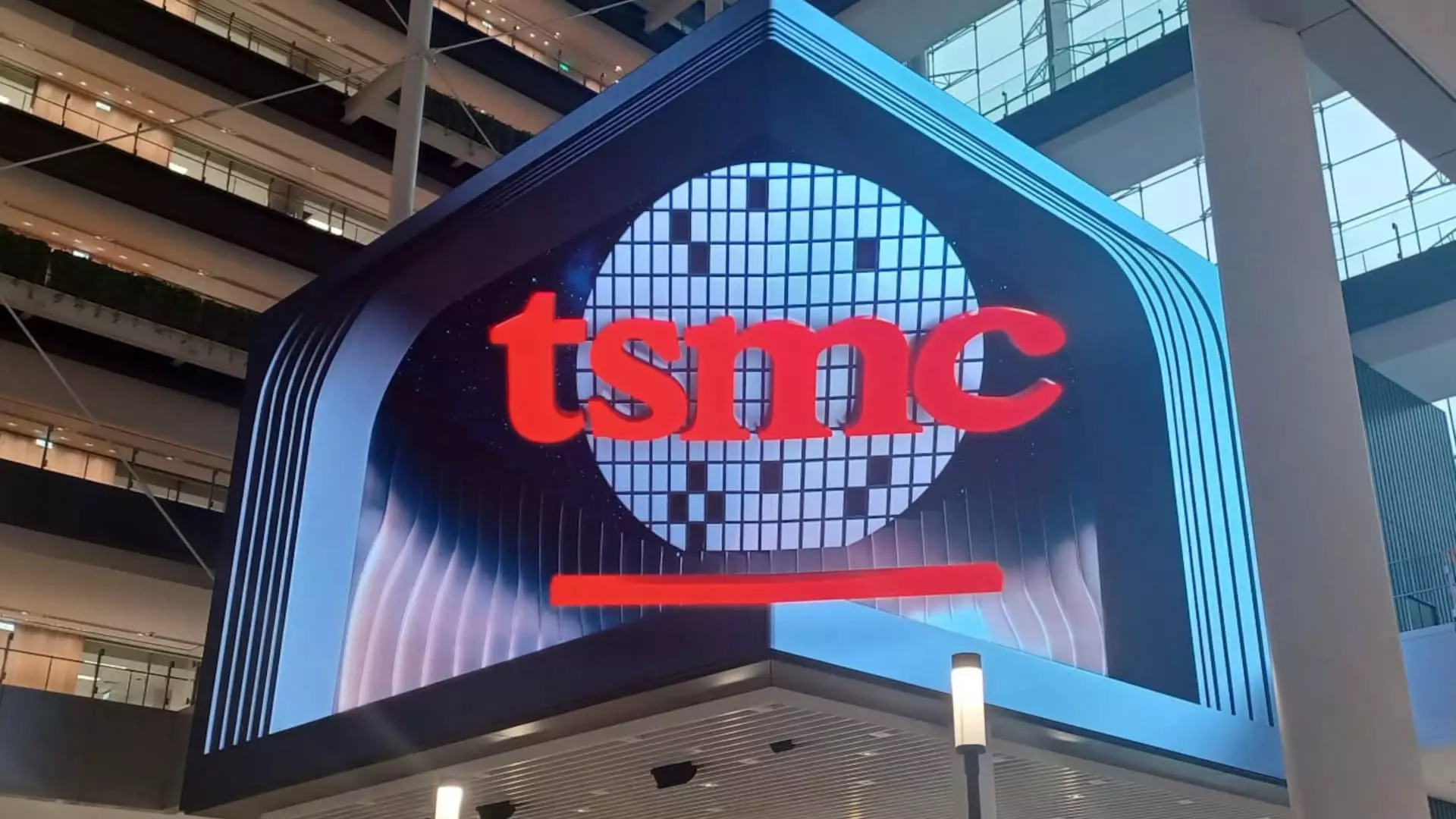Taiwan Semiconductor Manufacturing Company (TSMC) has recently showcased remarkable financial results for the fourth quarter, highlighting the burgeoning demand for advanced semiconductor chips, particularly those tailored for artificial intelligence (AI) applications. As a critical player in the global semiconductor supply chain, TSMC’s performance not only signals its strong market position but also sets the stage for upcoming challenges in an evolving industry landscape.
For Q4, TSMC reported net revenue of NT$868.46 billion (approximately $26.36 billion), surpassing expectations set by analysts who anticipated NT$850.08 billion. This impressive figure reflects a staggering 38.8% increase compared to the same quarter the previous year. The company’s net income also exceeded projections, reaching NT$374.68 billion, marking a 57% year-over-year surge. This monumental success underscores TSMC’s ability to capitalize on the escalating demand for high-performance computing chips.
The fourth quarter saw TSMC’s revenue bolstered primarily by its high-performance computing (HPC) division, which encompasses AI technologies and 5G applications. Contributing to a significant portion of revenue, this division alone accounted for 53% of the quarterly income, driven in part by robust sales of processors for AI applications, including those integrated into Apple’s latest iPhone 16 model.
Industry analysts, like Brady Wang from Counterpoint Research, noted that the demand for AI chips in Q4 was unprecedented. The rapid growth in artificial intelligence usage across different sectors has catapulted TSMC into a vital position, making it a go-to supplier for companies seeking cutting-edge semiconductor solutions. Huang, TSMC’s CFO, stated that they perceive a robust customer demand for AI-related products, forecasting that by 2024, revenue from AI accelerators might account for a “mid-teens percentage” of total revenue. The projected doubling of AI accelerator revenue by 2025 indicates an ongoing trend toward the integration of AI across various applications, compounding growth opportunities for TSMC.
The culmination of TSMC’s efforts resulted in a record-breaking annual revenue of NT$2.9 trillion, the highest since its inception in 1994. This accomplishment speaks volumes about TSMC’s market strategy and operational prowess, translating into a significant 81% rise in its shares throughout 2024. Furthermore, shares of various European semiconductor firms simultaneously reflected a positive trend, indicating a broader excitement about the semiconductor sector.
While TSMC demonstrates unprecedented growth, the company remains cautious about the future amidst geopolitical tensions, particularly concerning U.S.–China trade relations. According to TSMC’s CEO, C.C. Wei, uncertainties related to advanced semiconductor shipments to China may pose challenges moving forward. With the incoming administration of President-elect Donald Trump raising concerns over potential tariffs and trade restrictions, TSMC’s executives are keenly aware of shifting political landscapes that may impact their operations.
Despite these potential headwinds, experts like Wang maintain optimism for TSMC’s trajectory in 2025, predicting sustained growth driven by the relentless expansion of AI applications. This perspective indicates a prevailing belief in TSMC’s adaptability and resilience in facing both internal and external challenges.
TSMC’s fourth-quarter results not only highlight an exceptional performance driven by the surge in AI chip demand but also encapsulate the complexities of navigating a competitive and politically charged environment. With significant revenue forecasts and a solid growth trajectory, TSMC stands well-positioned to leverage its strengths. However, the company must also strategically address the inherent challenges posed by international trade relations and market fluctuations. As the semiconductor industry evolves, TSMC’s capacity to innovate and adapt will be pivotal in maintaining its leadership position while contributing to the growth of emerging technologies across the globe.

